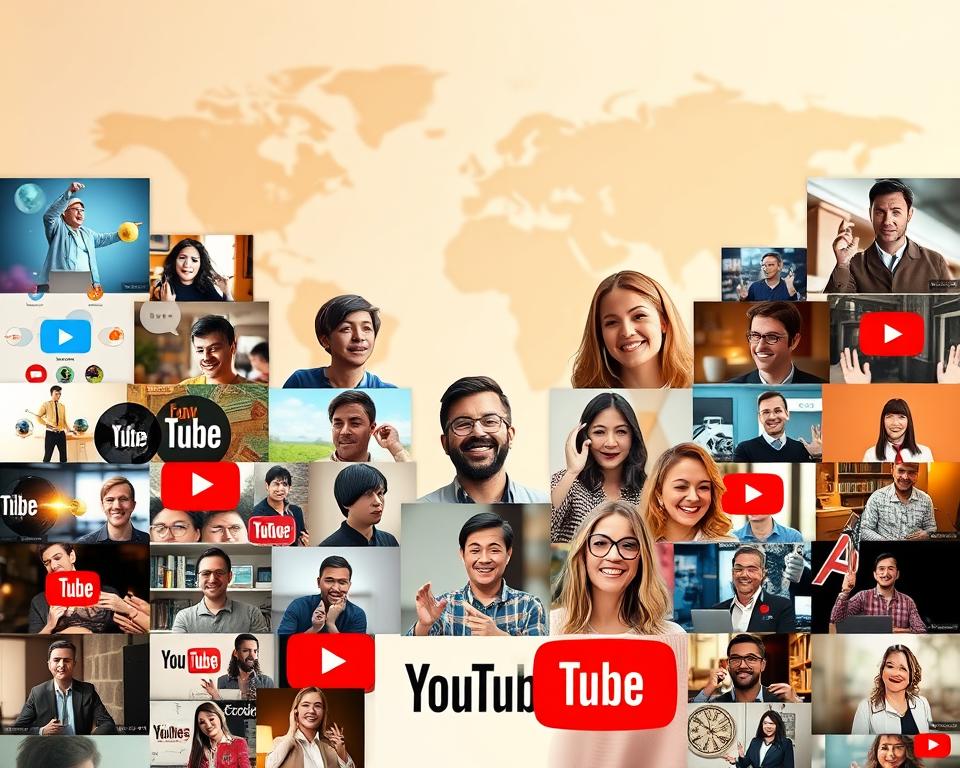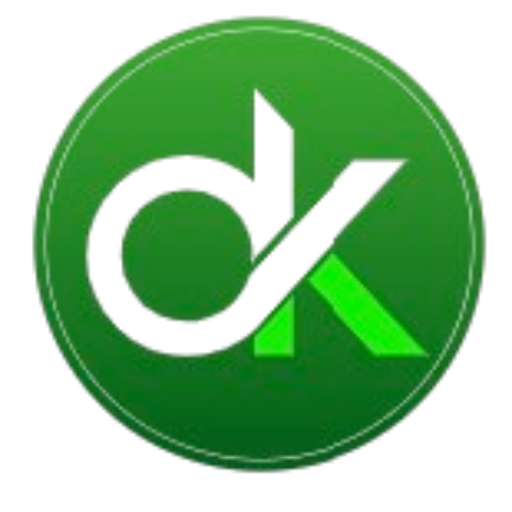Anuncios
Are you fascinated by the unknown and the unexplained? Do you often find yourself wondering about the mysteries of the world? Curiosity is a fundamental human trait that drives us to explore, learn, and innovate.
In today’s information age, having access to reliable sources is crucial to feeding our curiosity. With the vast amount of information available, it’s essential to know where to look for trustworthy and engaging content.
The importance of curiosity cannot be overstated. It has driven human progress and innovation throughout history, from scientific discoveries to artistic breakthroughs. By exploring the best resources available, we can continue to nurture our curiosity and expand our knowledge.
The Fascinating World of Curiosities and Why They Matter
In a world where knowledge is power, curiosity is the driving force behind human progress. It is the foundation upon which innovation is built, pushing the boundaries of what is possible. Curiosity sparks new ideas and fosters a deeper understanding of the world around us.
How Curiosity Drives Human Progress and Innovation
Throughout history, curiosity has been the catalyst for some of humanity’s most significant achievements. From the discovery of fire to the exploration of space, curiosity has driven us to explore, invent, and innovate. As Albert Einstein once said, “The important thing is not to stop questioning. Curiosity has its own reason for existence.” This mindset has led to countless breakthroughs, transforming our world in profound ways.
“Curiosity is the wick in the candle of learning.”
The Digital Revolution in Knowledge Acquisition
The digital age has revolutionized how we acquire knowledge, making it more accessible than ever. With the rise of the internet and digital platforms, information is now at our fingertips. Recommended knowledge hubs and ultimate learning sites have democratized education, allowing people to learn at their own pace and explore topics that spark their curiosity.
The ease of access to information has not only accelerated learning but has also connected people worldwide, creating a global community of curious minds. As we continue to navigate this digital landscape, it’s clear that curiosity will remain a driving force behind human progress and innovation.
Best Curiosity Sources Online: Educational Platforms
In the digital age, curiosity seekers have a plethora of online educational platforms at their disposal. These platforms have transformed the way we learn, making it easier to explore our curiosities and expand our knowledge.
Coursera, edX, and Khan Academy: Learning Hubs for the Curious
Coursera, edX, and Khan Academy are among the top educational platforms that offer a wide range of courses and resources. Coursera partners with top universities to offer courses on various subjects, from science and technology to humanities. edX also offers university-level courses, with a focus on subjects like computer science and business. Meanwhile, Khan Academy provides free, high-quality educational resources, primarily in the form of video lectures, covering subjects from math and science to art and history.
TED and TED-Ed: Ideas Worth Spreading
TED y TED-Ed are renowned for spreading ideas and fostering curiosity. TED Talks feature experts from various fields sharing their insights and discoveries. TED-Ed focuses on educational content, offering interactive lessons and resources for learners.
Most Popular TED Talks About Unusual Discoveries
- Talks on mysterious phenomena and unexplained events
- Insights into cutting-edge research and innovations
- Discussions on the intersection of technology and humanity
How to Get the Most from Educational Platforms
To maximize learning, it’s essential to be strategic. Here are some tips:
- Set clear learning goals and objectives.
- Engage actively with the course materials and community.
- Apply what you learn to real-world scenarios.
By leveraging these educational platforms and adopting a proactive approach to learning, individuals can significantly enhance their knowledge and satisfy their curiosity.
Specialized Websites That Fuel Wonder and Discovery
For those eager to explore the world’s wonders, several specialized websites stand out. These platforms have become essential for individuals looking to satisfy their curiosity and expand their knowledge on a wide range of topics.
Atlas Obscura: Exploring the World’s Hidden Wonders
Atlas Obscura is a unique online destination that uncovers the world’s most unusual and fascinating places. From obscure historical sites to natural wonders, this website is a treasure trove for those looking to explore beyond the ordinary.
HowStuffWorks and Mental Floss: Everyday Curiosities Explained
HowStuffWorks and Mental Floss are two websites that demystify the world around us. They offer in-depth explanations on a variety of subjects, from science and technology to history and culture, making complex topics accessible to a broad audience.
Scientific American and National Geographic: Deep Dives into Our World
For those interested in more in-depth scientific and geographical knowledge, Scientific American and National Geographic are invaluable resources. These websites provide detailed articles and research findings on various subjects, including environmental science, biology, and anthropology.
By exploring these top-rated curiosity sources, individuals can fuel their curiosity and gain a deeper understanding of the world. Whether you’re interested in history, science, or culture, these websites offer a wealth of information to satisfy your curiosity.
Podcasts That Transform Commutes into Learning Opportunities
For those who seek knowledge on-the-go, podcasts have emerged as a powerful tool, transforming mundane commutes into opportunities for growth. With a plethora of options available, listeners can choose from a wide range of topics that spark curiosity and foster learning.
Radiolab and This American Life: Stories That Spark Curiosity
Radiolab y This American Life are two popular podcasts known for their engaging storytelling and ability to spark curiosity. They cover a broad spectrum of topics, from science and philosophy to human experience, making complex concepts accessible and entertaining.
Stuff You Should Know and 99% Invisible: The Hidden Side of Everything
Stuff You Should Know offers a general knowledge approach, covering a vast array of topics, while 99% Invisible delves into the design and architecture that surrounds us, revealing the hidden aspects of our everyday world. Both podcasts are engaging and informative, making them perfect for commuters.
Science Vs and Freakonomics: Separating Facts from Fiction
Science Vs y Freakonomics are podcasts that challenge listeners to think critically about the world around them. They explore various topics, applying scientific methods and economic principles to debunk myths and uncover the truth behind popular narratives.
These podcasts not only provide entertainment but also serve as valuable resources for those looking to expand their knowledge and satisfy their curiosity during their daily commutes.
YouTube Channels for Visual Learners and Curiosity Enthusiasts
YouTube has emerged as a leading platform for visual learners, offering a diverse range of educational channels. The platform hosts a variety of content creators who are making learning both engaging and entertaining.
Vsauce, Veritasium, and Kurzgesagt: Science Made Fascinating
Channels like Vsauce, Veritasium, and Kurzgesagt have gained popularity for their unique approach to explaining complex scientific concepts. They use a mix of animations, experiments, and thought-provoking questions to keep viewers engaged. For instance, Vsauce explores intriguing topics that often lie at the intersection of science, philosophy, and culture.
Some of the key features of these channels include:
- In-depth analysis: They delve deep into various subjects, providing detailed explanations.
- Engaging storytelling: The use of narratives makes complex information more accessible.
- Visual aids: Incorporating animations and graphics enhances understanding and retention.

CrashCourse and SmarterEveryDay: Educational Content That Entertains
CrashCourse and SmarterEveryDay are other notable channels that have successfully blended education with entertainment. CrashCourse covers a wide range of subjects, from science and history to literature, often with a humorous tone. SmarterEveryDay, on the other hand, focuses on exploring the world through experiments and real-world applications.
How These Creators Research Their Fascinating Content
The creators behind these channels are meticulous in their research, often consulting with experts and referencing credible sources. They strive to present information in a way that is both accurate and engaging.
Interactive Learning Through Video Content
Interactive elements, such as quizzes, challenges, and Q&A sessions, are increasingly being used to enhance viewer engagement. This interactive approach to learning makes the content more immersive and enjoyable.
For more insights on the best YouTube channels beyond subscriber count and views, visit Vidpros.
Mobile Applications That Deliver Daily Doses of Knowledge
In today’s fast-paced world, staying curious is easier than ever with the help of mobile applications designed to deliver daily doses of knowledge. The proliferation of smartphones has made it possible to access a vast array of educational content anywhere, anytime.
Several mobile applications stand out for their premium learning experiences and user-friendly interfaces. These apps cater to different learning styles and preferences, ensuring that there’s something for everyone.
Curiosity Stream and Brilliant: Premium Learning Experiences
Curiosity Stream offers a vast library of documentaries and educational series on various subjects, from science and history to technology. Brilliant, on the other hand, focuses on interactive learning, providing engaging puzzles and courses in math, science, and computer science.
Blinkist and Pocket: Curating Knowledge for Busy People
For those with busy schedules, Blinkist provides summaries of non-fiction books, allowing users to grasp key concepts quickly. Pocket is another valuable tool, enabling users to save articles and videos for later, making it easier to stay informed on the go.
Duolingo and Quora: Learning Communities at Your Fingertips
Duolingo has revolutionized language learning with its gamified approach, making it fun and engaging. Quora, a platform where users can ask and answer questions, fosters a community of learners and experts sharing knowledge on a wide range of topics.
These mobile applications not only make learning convenient but also enjoyable, catering to the diverse needs of curious minds.
Books and Publications That Dive Deep into Fascinating Topics
The pursuit of curiosity often leads us to the pages of intriguing books and publications. For those seeking to deepen their understanding of the world, these resources offer a wealth of knowledge on a wide range of subjects.
Popular Science Books That Changed How We See the World
Popular science books have a unique ability to make complex scientific concepts accessible to a broad audience. Titles like “A Short History of Nearly Everything” by Bill Bryson and “Sapiens: A Brief History of Humankind” by Yuval Noah Harari have not only educated but also captivated readers worldwide. These books inspire a sense of wonder and encourage readers to explore further.
Magazines and Journals for the Intellectually Curious
Magazines and journals are another excellent source for those looking to stay updated on the latest discoveries and insights. Publications such as Scientific American, National Geographic, y The New Yorker offer in-depth articles on a variety of topics, from science and technology to culture and society.
How to Build a Personal Library of Curiosities
Building a personal library of curiosities involves selecting books and publications that resonate with your interests. Start by identifying your areas of curiosity, then seek out titles that delve into those subjects. Consider both classic works and contemporary publications to create a well-rounded collection.
Digital vs. Physical Reading for Knowledge Retention
The debate between digital and physical reading often centers on knowledge retention. While some studies suggest that physical books enhance comprehension and retention, others argue that digital platforms offer flexibility and accessibility that can encourage more frequent reading. Ultimately, the choice between digital and physical reading depends on personal preference and learning style.
By incorporating a mix of popular science books, magazines, and journals into your reading routine, you can cultivate a deeper understanding of the world and satisfy your curiosity. Whether you prefer the tactile experience of physical books or the convenience of digital reading, the key is to find what works best for you and enjoy the journey of discovery.
Social Media Accounts Dedicated to Mind-Expanding Facts
In today’s digital age, social media has become a treasure trove of knowledge, offering a plethora of mind-expanding facts at our fingertips. Curiosity seekers can now explore a vast array of topics, from science and history to culture and technology, all within the platforms they use daily.
Instagram and TikTok: Visual Knowledge in Bite-Sized Formats
Instagram and TikTok have emerged as leading platforms for visual knowledge sharing. Accounts like National Geographic y Vsauce on Instagram, and creators like Curiosity on TikTok, offer bite-sized, engaging content that makes learning fun and accessible. These platforms use a mix of stunning visuals, animations, and concise narratives to convey complex information in an easily digestible format.
Twitter Accounts and Reddit Communities for Curious Minds
Twitter and Reddit are also valuable resources for those seeking knowledge. Twitter accounts such as Scientific American y History Channel share timely updates and insights, while Reddit communities like r/AskScience y r/TodayILearned provide forums for discussion and Q&A. These platforms enable users to stay updated on the latest discoveries and engage with experts and enthusiasts alike.
How to Curate Your Social Media for Maximum Learning
To maximize learning on social media, it’s essential to curate your feeds effectively. Follow accounts that align with your interests, and use features like lists or hashtags to organize content. Engage with the material by asking questions, sharing your findings, or discussing topics with others. By being intentional about the content you consume and interact with, you can transform your social media experience into a powerful tool for personal growth and education.
Evaluating the Reliability of Information Sources
The ability to critically evaluate information sources is a vital skill in today’s information-rich world. As we consume information from various online platforms, it’s essential to assess the credibility of the sources to make informed decisions.
Beware of Red Flags
When evaluating information sources, there are several red flags to watch out for. These include bias, outdated information, y grammatical errors. Sources with these characteristics may indicate a lack of credibility or reliability. It’s also crucial to consider the author’s credentials and expertise in the subject matter.
Cross-Referencing Techniques
Cross-referencing is a powerful technique for verifying the accuracy of information. By comparing information across multiple sources, you can identify inconsistencies and verify facts. This involves using fact-checking websites y academic databases to validate claims. Additionally, using diverse sources can provide a more comprehensive understanding of a topic.
Tools for Fact-Checking
Several tools and resources are available to help with fact-checking. Websites like Snopes y FactCheck.org specialize in verifying the accuracy of claims. Moreover, browser extensions like NewsGuard can help identify trustworthy news sources. By leveraging these tools, you can enhance your ability to evaluate information sources critically.
Conclusion: Creating Your Personal Ecosystem of Curiosity
Cultivating curiosity is a lifelong journey, and having the right resources is crucial. By exploring the ultimate learning sites y recommended knowledge hubs discussed in this article, you can create a personalized ecosystem that fuels your curiosity and drives your passion for learning.
From online educational platforms like Coursera and edX to podcasts like Radiolab and YouTube channels like Vsauce, there are numerous ways to discover new topics and expand your knowledge. By leveraging these resources, you can stay up-to-date on the latest developments in various fields and continue to grow as a curious and informed individual.
As you navigate the vast landscape of available information, remember to evaluate sources critically and cross-reference information to ensure accuracy. By doing so, you can trust the knowledge you acquire and make informed decisions. By embracing curiosity and nurturing your love for learning, you can unlock new opportunities and achieve your goals.



